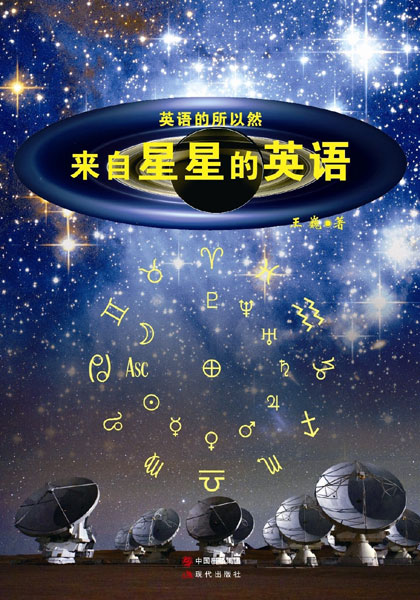 |
|
[Photo provided to China Daily] |
Astrology and astronomy
An avid researcher of etymology, Wang entertains himself by examining the long-buried connection between a primitive obsession with the unknown and the modern English language.
One example, he cites, is the English word "disaster", in which "di" means "absence or removal" and "astor" is the Latin word for star.
"Imagine that people long ago gazed at the night sky and were panicked by the sudden disappearance of a familiar star. Luckily for them, they didn't have smog back then," Wang says.
According to him, the influence astrology has had on Western culture can be understood by looking up the many English words that were derived from heavenly bodies.
In his book, Wang also focuses on the tension and interplay between astrology and astronomy, with the latter being venerated today as science.
"To put it simply, astronomy rose from astrology to become its most powerful counterforce," says Wang. Back in the 15th and 16th centuries, the pioneers of modern astronomy - from Nicolaus Copernicus to Galileo Galilei - invariably had a sincere interest, if not belief, in astrology, he adds.
Galilei, who believed in heliocentrism (sun at the center of the solar system), first proposed by Copernicus, made enemies in the Roman Catholic establishment because of his scientific approach to the universe, but that didn't prevent him from having a horoscope cast for his newborn daughter.
|
|
|
|
|
|
|
|
